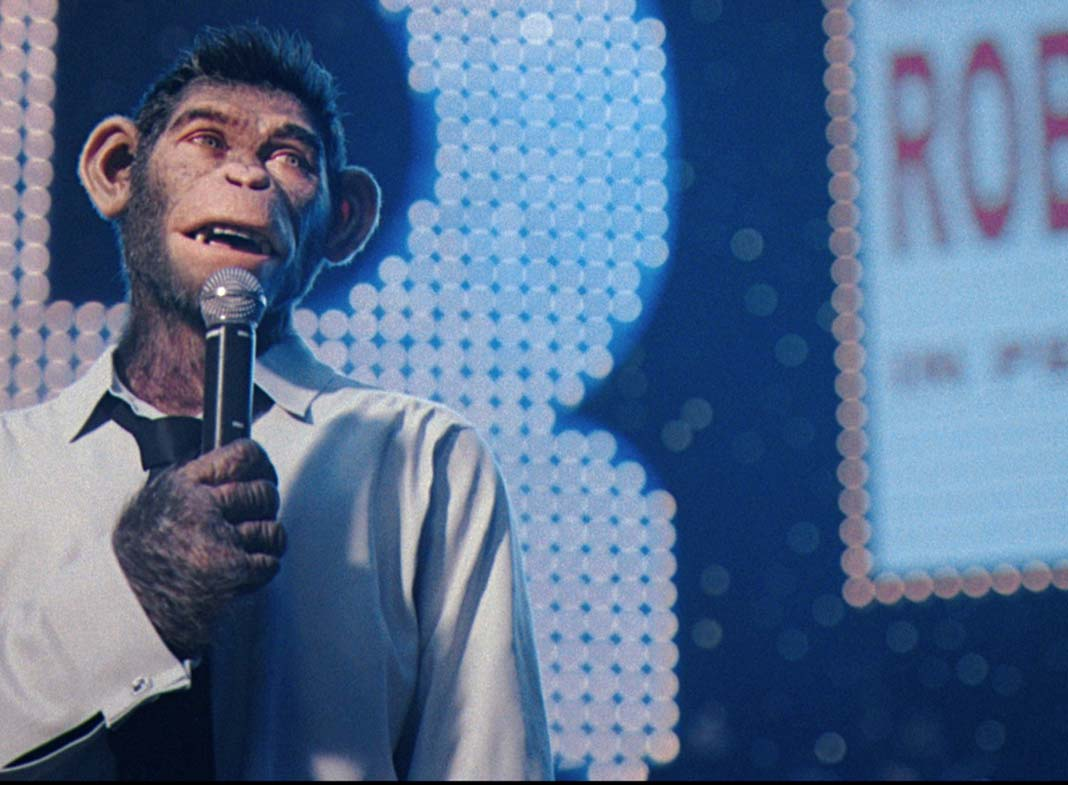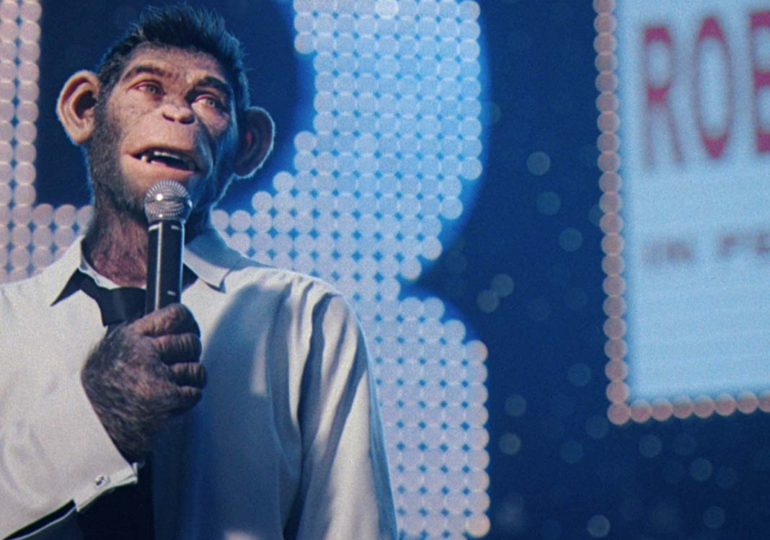Robbie Williams Biopic Better Man Explores Fame Through a CGI Chimp

The new biopic Better Man takes an unconventional approach to telling the tumultuous story of UK pop star Robbie Williams, depicting the singer as a CGI chimpanzee. Directed by Michael Gracey, known for The Greatest Showman, the film offers an intense exploration of fame’s psychological toll, blending surrealism with raw emotion.
Fame, with its intoxicating allure and destructive pressures, has long been a subject in music and film, but Better Man offers a unique perspective. The film’s choice to animate Williams as an ape (voiced by Jonno Davies through motion capture) symbolizes the dehumanizing nature of celebrity. Williams himself explained that being in the industry often feels like becoming a robot or a monkey, which is why he chose this form for his filmic counterpart.
The movie begins with Williams’s childhood, portrayed with a mix of innocence and aspiration. We see the young “Robert” dreaming of stardom, sharing intimate moments with his family. As he rises to fame, first with the boy band Take That, the film showcases the highs of pop stardom, including energetic performances and chart-topping hits. However, it quickly shifts to the darker side of fame, as Williams grapples with self-doubt, addiction, and depression, culminating in his departure from the band.
Better Man is more than just a musical retelling of Williams’s life. It reinterprets his songs in a fresh context. Songs like “Feel” and “Come Undone” are woven into the narrative, reflecting his internal struggles rather than merely acting as nostalgic crowd-pleasers. The film doesn’t take the easy route of a typical jukebox musical, instead, it offers a deep dive into the emotional cost of fame.
One of the most intriguing elements is how the film’s surreal aesthetic – especially the CGI chimp – amplifies the bizarre nature of the music industry. Williams’s battles with self-criticism and his public persona are depicted through a grotesque yet sympathetic filter, making his flaws feel both universal and uniquely his. As a result, the film balances the absurdity of stardom with the painful truths of mental health and self-doubt.
As a piece of pop culture history, Better Man also acts as a snapshot of the ‘90s music industry, a time when fame was at its peak and artists like Williams were subjected to immense pressure. Through interviews and behind-the-scenes insights, the film explores the manipulation and commercialization of pop stars, painting a picture of a system that exploits young performers.
The film doesn’t just focus on Williams’s story. It serves as a reflection on the broader experience of pop stars, particularly those who were part of the boy band phenomenon. The pressure to maintain a public image, the emotional toll of being in the spotlight, and the struggles with identity and addiction are all examined in depth.
Ultimately, Better Man is a narrative of redemption. Despite the film’s dark moments, it ends on a hopeful note, acknowledging Williams’s personal growth while hinting at the ongoing journey of his career. By the end, viewers are left with a sense of the complexity of celebrity: the excruciating vulnerability and the exhilarating highs that come with it.





















